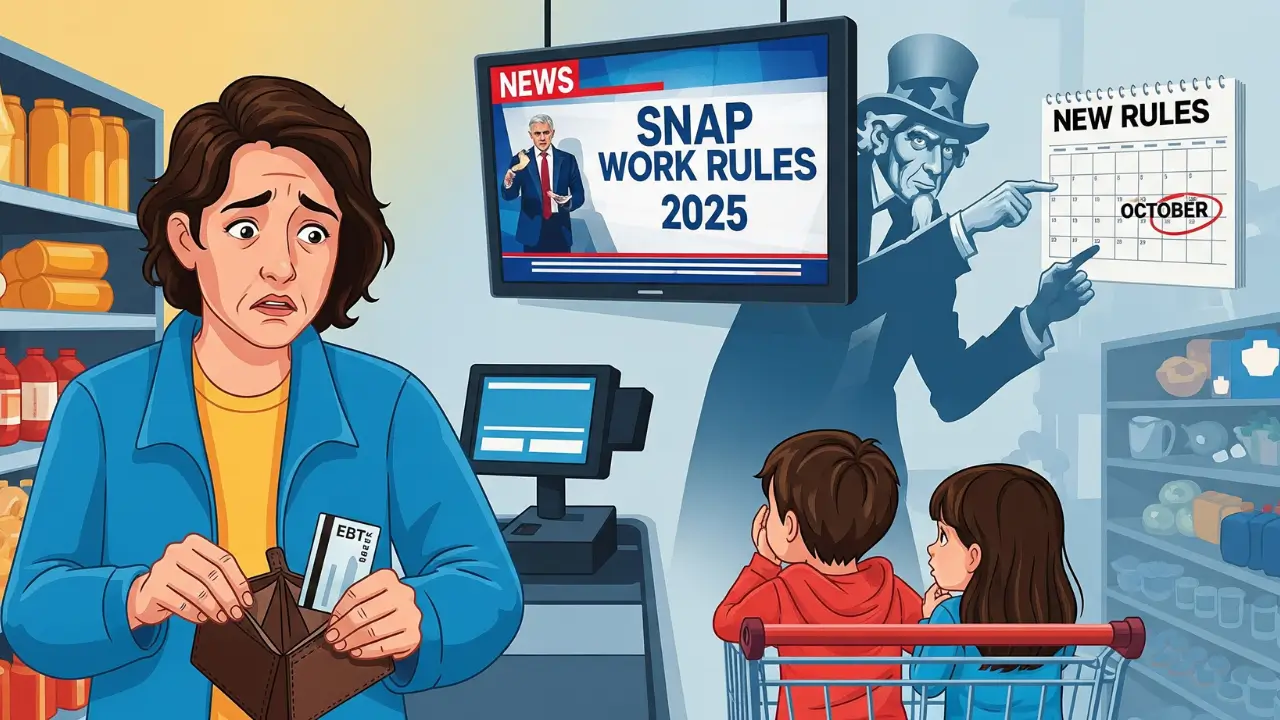Starting October 1, 2025, new rules for the Supplemental Nutrition Assistance Program (SNAP) are now in place. These changes come from the One Big Beautiful Bill Act of 2025, signed by President Donald Trump in July. The law affects millions of adults and about 800,000 households with children who depend on food benefits.
The new rules expand work requirements for people who want to keep SNAP. Now, Able-Bodied Adults Without Dependents (ABAWDs) are defined as adults 18 to 64 years old. Before, the age limit was 54. Adults must now work, volunteer, or join job training at least 20 hours each week (80 hours a month). If they don’t, they can only get SNAP for three months in any three-year period.
One of the most controversial changes is the removal of important exemptions. Before, groups like veterans, homeless individuals, and young adults who aged out of foster care were protected. These groups must now follow work rules. Parents who care for children are also affected. The exemption only applies to those with kids under 14 years old. Parents of teenagers aged 14 to 17 must now meet the work requirements to stay eligible.
The new law also reduces flexibility for states. In the past, states could ask for waivers during hard economic times. Now, waivers are allowed only if an area’s unemployment is higher than 10%, except for Alaska and Hawaii.
State rollout varies:
- Tennessee: Rules already apply to adults ages 18 to under 65 without children under 14.
- Pennsylvania: Adults 18–54 follow the rules now. Adults up to 64 will start on November 1, 2025.
- Delaware: People can still get benefits for three months without meeting work rules, but cuts start January 1, 2026.
Some exemptions remain, including people who are:
- Unable to work because of physical or mental issues
- Pregnant
- Working at least 30 hours per week
- In approved drug or alcohol treatment
- Students in school at least half-time
Child welfare advocates and county workers warn that the new rules could harm families. Even though only adults face work rules, SNAP covers the whole household. If adults lose benefits, children’s food security is at risk. Experts from PolicyLab at Children’s Hospital of Philadelphia say as many as 800,000 kids could lose part of their SNAP support. Research shows that work reporting rules do not increase jobs but often make people lose benefits because of paperwork and reporting mistakes.
Today, 42 million Americans receive SNAP. These new work rules are one of the biggest changes to the program in decades. The USDA Food and Nutrition Service is giving states guidance on how to apply the rules, while local agencies try to explain the changes to families.
For now, the focus is on helping adults understand what they must do to keep benefits and how to get support for jobs, training, or volunteering. Families across the country are urged to check with their state SNAP office for details about their area.




